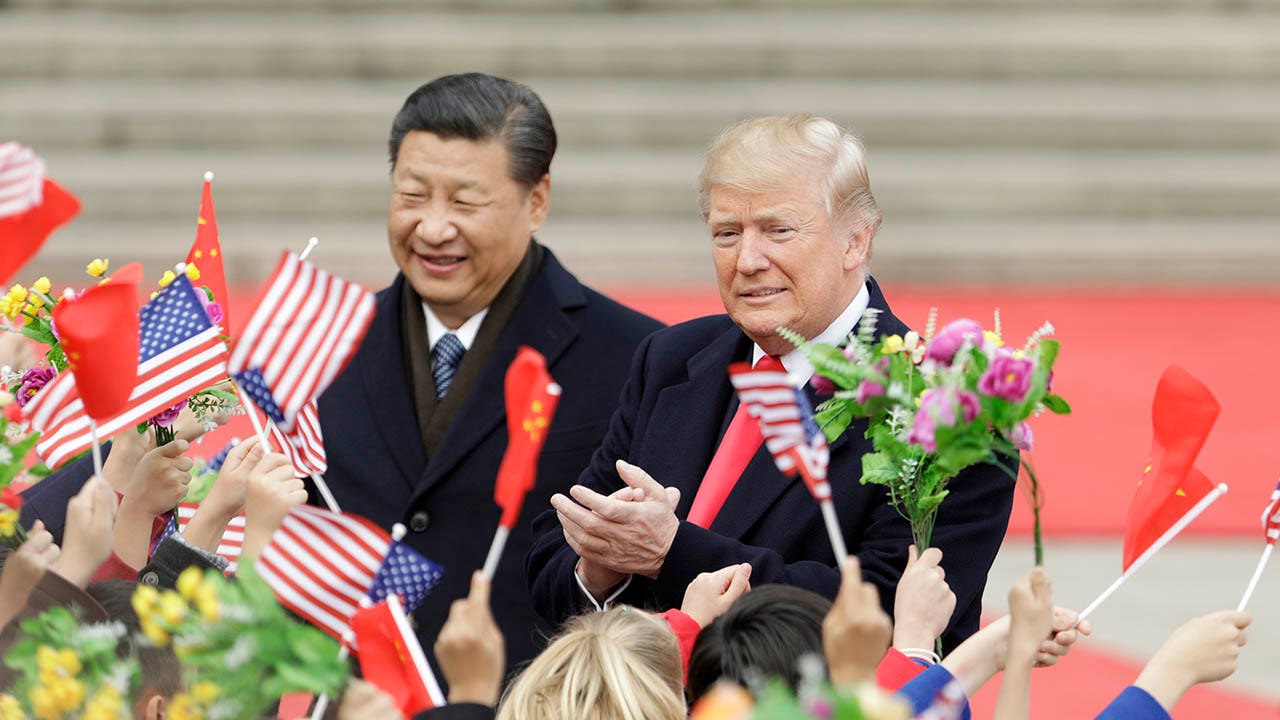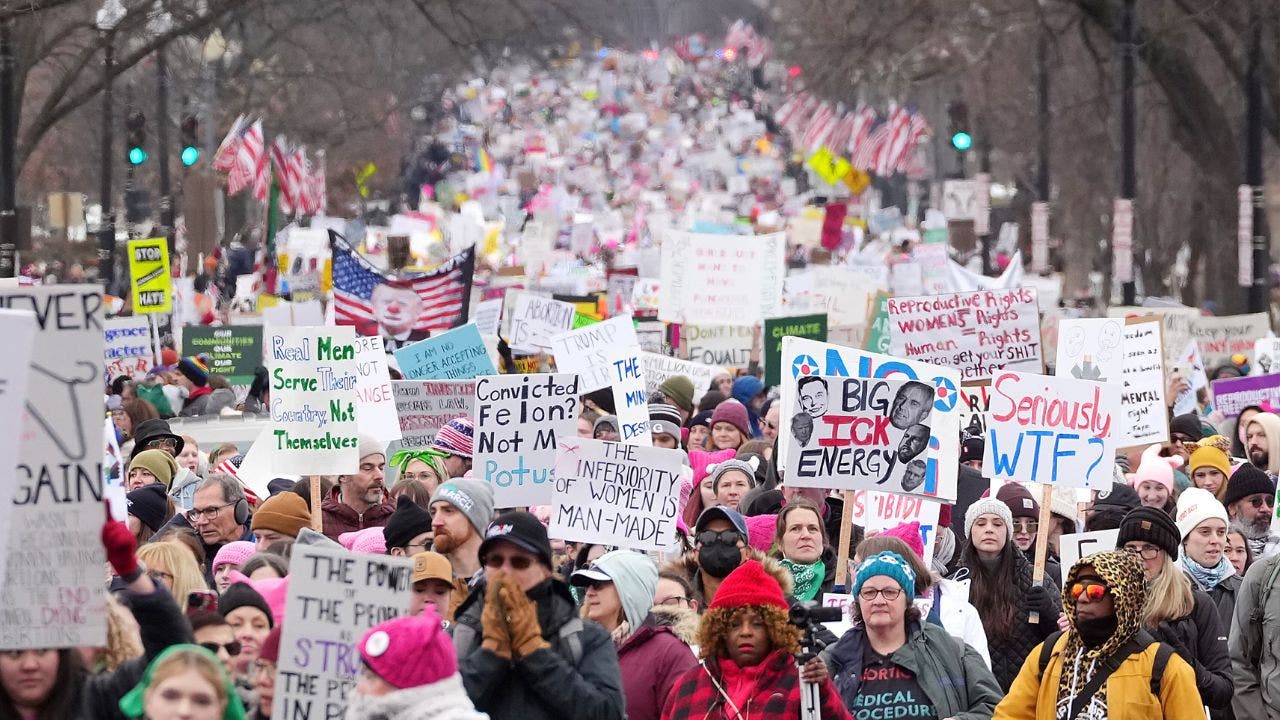Health
Biden Picks Retired General to Lead New White House Pandemic Office

The News
President Biden has picked Dr. Paul Friedrichs, a military combat surgeon and retired Air Force major general who helped lead the Covid-19 response at the Pentagon, to head a new White House office created by Congress to prepare for and manage future biological threats.
The White House announced the appointment on Friday and said it would take effect on Aug. 7. It will then be up to Dr. Friedrichs to set up the new office, the Office of Pandemic Preparedness and Response Policy, although the administration has christened it with a shorter Washington acronym: O.P.P.R.
The appointment comes after a lengthy search for a director that ended where it began — at the White House, where Dr. Friedrichs recently joined the staff of the National Security Council as the senior director for global health security and biodefense. Before that, he served as the Joint Staff surgeon at the Pentagon, providing medical advice to the chairman of the Joint Chiefs of Staff. His planned selection was reported last week by The Washington Post.
Why It Matters: Future health threats loom.
The coronavirus pandemic has often been described as the worst public health crisis in a century. But experts agree that given current migration patterns and the way humans intersect with animal life, it will not be a century — and it might not even be a decade — before the next pandemic arrives.
The era of Covid “czars” is over. Mr. Biden’s first White House coronavirus response coordinator, Jeffrey D. Zients, is now the White House chief of staff. The second coordinator, Dr. Ashish K. Jha, has gone back to his position as dean of the Brown University School of Public Health. Mr. Zients praised Dr. Friedrichs for his work on the pandemic, saying he would “lead the charge to ensure that never happens again.”
Covid-19 made clear that a biological health threat does not respect boundaries — including the boundaries that divide federal agencies. The appointment of Dr. Friedrichs signals a more permanent and coordinated effort to prepare for and respond to pandemics — one that will last beyond the Biden administration and will be centralized within the White House.
Background: Dr. Friedrichs served decades in the Air Force.
In a February speech, Dr. Friedrichs reflected on his 37-year career in the Air Force and shared a bit about himself. His father served in the Navy at the end of World War II, and his mother was a Hungarian freedom fighter whose parents were killed by the Russians. His wife was an Army doctor when they met.
He also reflected on the role of the military in fighting Covid-19, an effort that included helping to develop and distribute vaccines and providing medical support to struggling hospitals. “The military health system became the pinch-hitter that stepped in to help our civilian partners as we collectively struggled to work through that pandemic,” he said.
What’s Next: The job will focus on preparedness.
Dr. Friedrich’s new position gives him authority to oversee domestic biosecurity preparedness. He will need to work on the development of next-generation vaccines, ensure adequate supplies in the Strategic National Stockpile and ramp up surveillance to monitor for new biological threats.
He will also have to work with Congress to secure funding for preparedness efforts. Lawmakers created the new White House office as part of a government spending package enacted late last year.

Health
Semaglutide Pills and Injections Vs. Drops: Experts Weigh In | Woman's World

Sign Up
Create a free account to access exclusive content, play games, solve puzzles, test your pop-culture knowledge and receive special offers.
Already have an account? Login
Use left and right arrow keys to navigate between menu items.
Use escape to exit the menu.
Health
Jennifer Hudson Lost 80-Lbs Without Depriving Herself—Learn Her Secrets

Sign Up
Create a free account to access exclusive content, play games, solve puzzles, test your pop-culture knowledge and receive special offers.
Already have an account? Login
Use left and right arrow keys to navigate between menu items.
Use escape to exit the menu.
Health
Kennedy’s Plan for the Drug Crisis: A Network of ‘Healing Farms’

Though Mr. Kennedy’s embrace of recovery farms may be novel, the concept stretches back almost a century. In 1935, the government opened the United States Narcotic Farm in Lexington, Ky., to research and treat addiction. Over the years, residents included Chet Baker and William S. Burroughs (who portrayed the institution in his novel, “Junkie: Confessions of an Unredeemed Drug Addict”). The program had high relapse rates and was tainted by drug experiments on human subjects. By 1975, as local treatment centers began to proliferate around the country, the program closed.
In America, therapeutic communities for addiction treatment became popular in the 1960s and ’70s. Some, like Synanon, became notorious for cultlike, abusive environments. There are now perhaps 3,000 worldwide, researchers estimate, including one that Mr. Kennedy has also praised — San Patrignano, an Italian program whose centerpiece is a highly regarded bakery, staffed by residents.
“If we do go down the road of large government-funded therapeutic communities, I’d want to see some oversight to ensure they live up to modern standards,” said Dr. Sabet, who is now president of the Foundation for Drug Policy Solutions. “We should get rid of the false dichotomy, too, between these approaches and medications, since we know they can work together for some people.”
Should Mr. Kennedy be confirmed, his authority to establish healing farms would be uncertain. Building federal treatment farms in “depressed rural areas,” as he said in his documentary, presumably on public land, would hit political and legal roadblocks. Fully legalizing and taxing cannabis to pay for the farms would require congressional action.
In the concluding moments of the documentary, Mr. Kennedy invoked Carl Jung, the Swiss psychiatrist whose views on spirituality influenced Alcoholics Anonymous. Dr. Jung, he said, felt that “people who believed in God got better faster and that their recovery was more durable and enduring than people who didn’t.”
-
/cdn.vox-cdn.com/uploads/chorus_asset/file/25822586/STK169_ZUCKERBERG_MAGA_STKS491_CVIRGINIA_A.jpg)
/cdn.vox-cdn.com/uploads/chorus_asset/file/25822586/STK169_ZUCKERBERG_MAGA_STKS491_CVIRGINIA_A.jpg) Technology1 week ago
Technology1 week agoMeta is highlighting a splintering global approach to online speech
-

 Science1 week ago
Science1 week agoMetro will offer free rides in L.A. through Sunday due to fires
-
/cdn.vox-cdn.com/uploads/chorus_asset/file/23935558/acastro_STK103__01.jpg)
/cdn.vox-cdn.com/uploads/chorus_asset/file/23935558/acastro_STK103__01.jpg) Technology7 days ago
Technology7 days agoAmazon Prime will shut down its clothing try-on program
-

 News1 week ago
News1 week agoMapping the Damage From the Palisades Fire
-
/cdn.vox-cdn.com/uploads/chorus_asset/file/25826211/lorealcellbioprint.jpg)
/cdn.vox-cdn.com/uploads/chorus_asset/file/25826211/lorealcellbioprint.jpg) Technology7 days ago
Technology7 days agoL’Oréal’s new skincare gadget told me I should try retinol
-
/cdn.vox-cdn.com/uploads/chorus_asset/file/25832751/2192581677.jpg)
/cdn.vox-cdn.com/uploads/chorus_asset/file/25832751/2192581677.jpg) Technology3 days ago
Technology3 days agoSuper Bowl LIX will stream for free on Tubi
-

 Business5 days ago
Business5 days agoWhy TikTok Users Are Downloading ‘Red Note,’ the Chinese App
-
/cdn.vox-cdn.com/uploads/chorus_asset/file/25835602/Switch_DonkeyKongCountryReturnsHD_scrn_19.png)
/cdn.vox-cdn.com/uploads/chorus_asset/file/25835602/Switch_DonkeyKongCountryReturnsHD_scrn_19.png) Technology1 day ago
Technology1 day agoNintendo omits original Donkey Kong Country Returns team from the remaster’s credits



/cdn.vox-cdn.com/uploads/chorus_asset/file/25829977/STK051_TIKTOKBAN_B_CVirginia_C.jpg)










